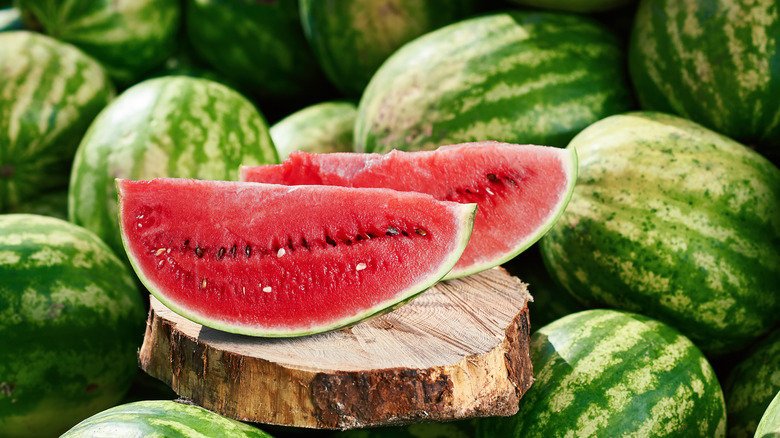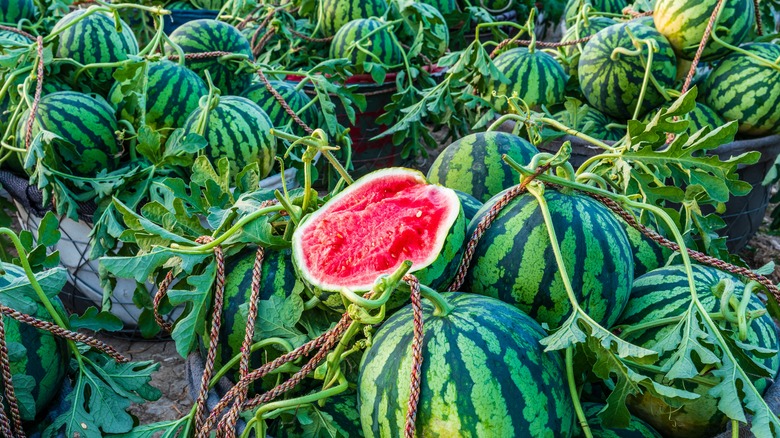The Truth Behind The Tapping Technique For Watermelons
As May melts into June and the heat ramps up, so do the summer appetites. This means BBQs, ice cream, cold lemonade, and, of course, the crown jewel of summer's crescent crown, the red ruby itself: watermelon.
Because a watermelon doesn't continue to ripen once it's removed from its vine, per MasterClass, you want to make absolutely sure that the melons you're getting from the store are the very best and the very ripest. Although, sometimes checking for a ripe watermelon is going to be a little different than with other fruits. While browsing for a perfect watermelon, you've more than likely seen people in the produce section or at the local farmers market inspecting the fruit closely and giving the watermelon some taps or even a smack or two to listen to the sound it makes.
Maybe you've got family that does this, or maybe you do it yourself because you saw other people doing it often enough. Whatever your reason is for tapping watermelons and listening for the sound that returns, you should keep doing it.
The watermelon's song of sweetness
As it turns out, there is some method to this melon tapping madness. According to Healthline, the sounds you hear back from the watermelon while tapping are a decent indicator of the melon's ripeness. SFGATE explains what you'll want to listen for is pitch — specifically, whether you hear back a hollow sound (which means it's ripe) or one that's more similar to a ring (which means it's less ripe).
To carry out this watermelon sound test yourself, simply tap on the watermelon with your finger and listen for what comes back to you. As said, if it's high-pitched, odds are the fruit isn't quite ripe, while a hollow sound indicates a ripe(r) melon. Further, per MasterClass, a low "thud" is a sign that the watermelon is past its perfectly ripened stage and has entered overripeness.
To put it another way, when tapping a watermelon to determine its ripeness, what you want is a deep tenor-like sound that is not too low, not too high, but just sweet enough. Of course, the watermelon tapping test is fun to do and makes you look like you know your way around a melon, but it's also a legitimate technique of discerning watermelon ripeness. So if you're looking to serve the best watermelon this summer, all you have to do is listen hard enough and that watermelon will sing.

